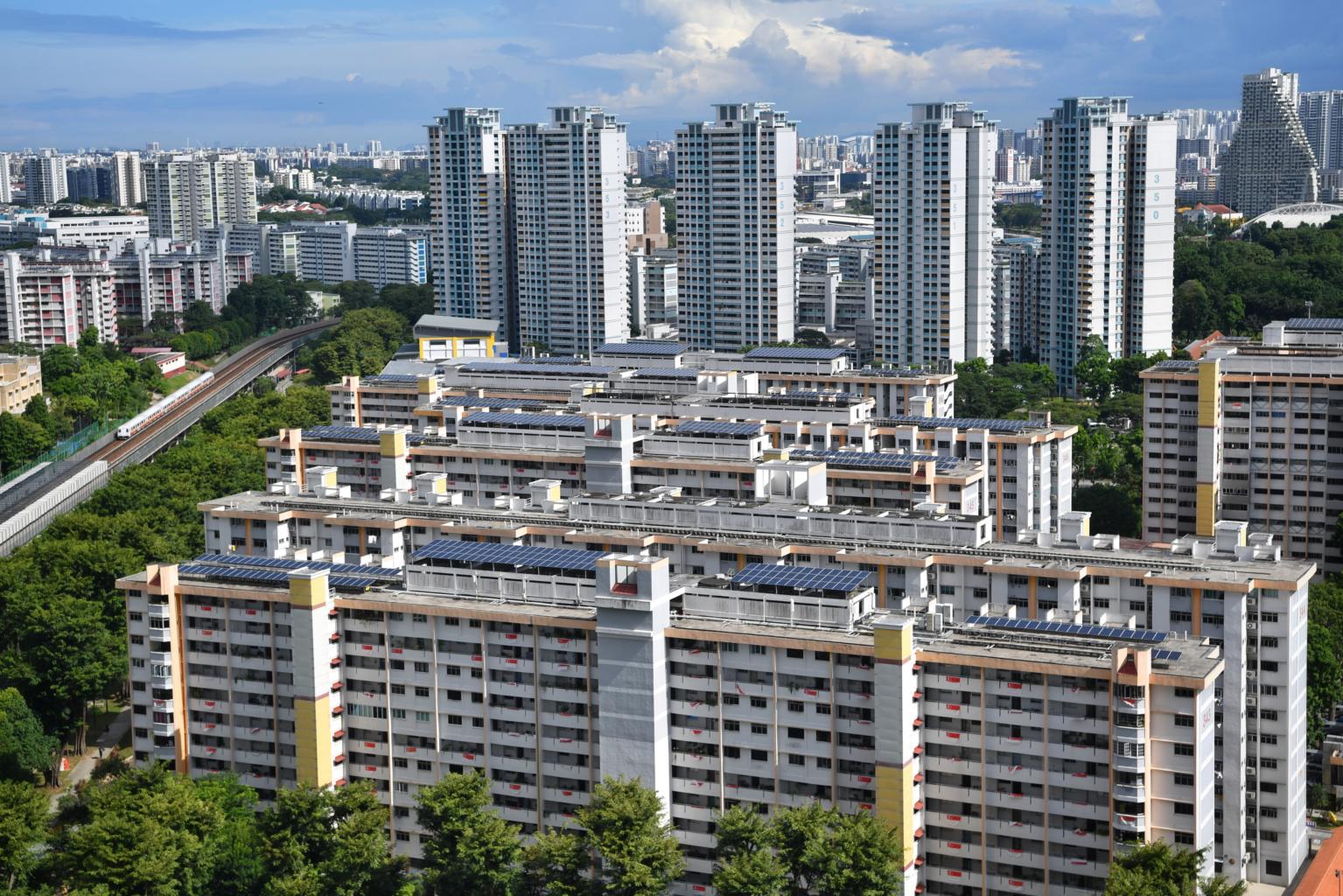Cooling measures could crimp property price appreciation for two years, stay en bloc market
Sign up now: Get ST's newsletters delivered to your inbox

The HDB resale market may take about two to three years to recalibrate itself to an equilibrium.
ST PHOTO: CHONG JUN LIANG
SINGAPORE - The prices of resale Housing Board flats and private residential properties could drop by about 10 per cent or more over the next two years as a result of new property market cooling measures announced by the Government on Wednesday (Dec 15), said Dr Lee Nai Jia, deputy director of National University of Singapore's (NUS) Institute of Real Estate and Urban Studies.
"The HDB resale market is rising at a very fast pace, and there are more units transacted above $1 million," said Dr Lee, adding that 211 HDB flats sold for above $1 million in the resale market in 2021, significantly more than the 77 HDB flats sold in 2020 and 56 in 2019.
Dr Lee said the market would take about two to three years to recalibrate itself to an equilibrium and that HDB and private residential sales should slow down "significantly" to fewer than 20,000 units transacted a year in that period. That is about the same level as the period between 2015 and 2017.
In 2021, 23,077 resale units were sold while 24,748 resale units were sold in 2020.
Real estate agency OrangeTee & Tie senior vice-president of research and analytics Christine Sun added that the measures will likely put a lid on the quantum of price increases in the HDB resale market moving forward. The agency has revised its price appreciation projections for HDB resale flats to 5 to 8 per cent next year, down from 8 to 11 per cent currently.
The Government had announced increases in the additional buyer's stamp duty (ABSD) for non-first time property buyers, including Singapore citizens, permanent residents and foreigners, from Thursday.
Meanwhile, the HDB loan-to-value (LTV) limit will be lowered from 90 per cent to 85 per cent of a property's purchase price. LTV refers to the loan amount as a percentage of the property's value.
Lowering the LTV limit on HDB loans for new and resale public housing flats will help to cool the "very strong growth" in resale HDB prices, which have seen a more than 13 per cent rise since the fourth quarter of 2020, said Dr Sing Tien Foo, professor and director of NUS' Institute of Real Estate and Urban Studies.
"Lowering the LTV limit from 90 per cent to 85 per cent will mean that HDB buyers taking HDB loans will need to fork out more cash for their purchases. Those who take commercial bank loans are subject to an LTV limit of 75 per cent," he said.
Other cooling measures announced include a reduction of the total debt servicing ratio (TDSR) from 60 per cent to 55 per cent, which will further restrict liquidity and financing for non-first time buyers, Dr Sing said. The TDSR limits the amount that a person can spend on monthly debt repayments.
For property developers, the cooling measures could also taper the recent momentum in the collective sale market.
The ABSD applied to developers, which will go up from 25 per cent to 35 per cent, is likely to increase development risks for en bloc developers who must sell their projects within five years, "especially for developments on large land parcels", said Dr Sing.
This will further dampen collective sale activities, which have just gained some steam after a recent spike in developments such as Watten Estate, Peace Centre and Peace Mansion being put up for collective sale, said Dr Sing.
The measures are being imposed at a time when the possibility of interest rate hikes is rising, said Dr Lee.
"The Monetary Authority of Singapore recently warned households on rising mortgage debt ahead of potential (interest rate) hikes, especially with Singapore households amassing larger debt," he said, adding that household debt grew by 6.8 per cent over the past year.
He added: "It is (also) possible that the Government is concerned that the financial market will be under stress at the rate sales and prices are going."


